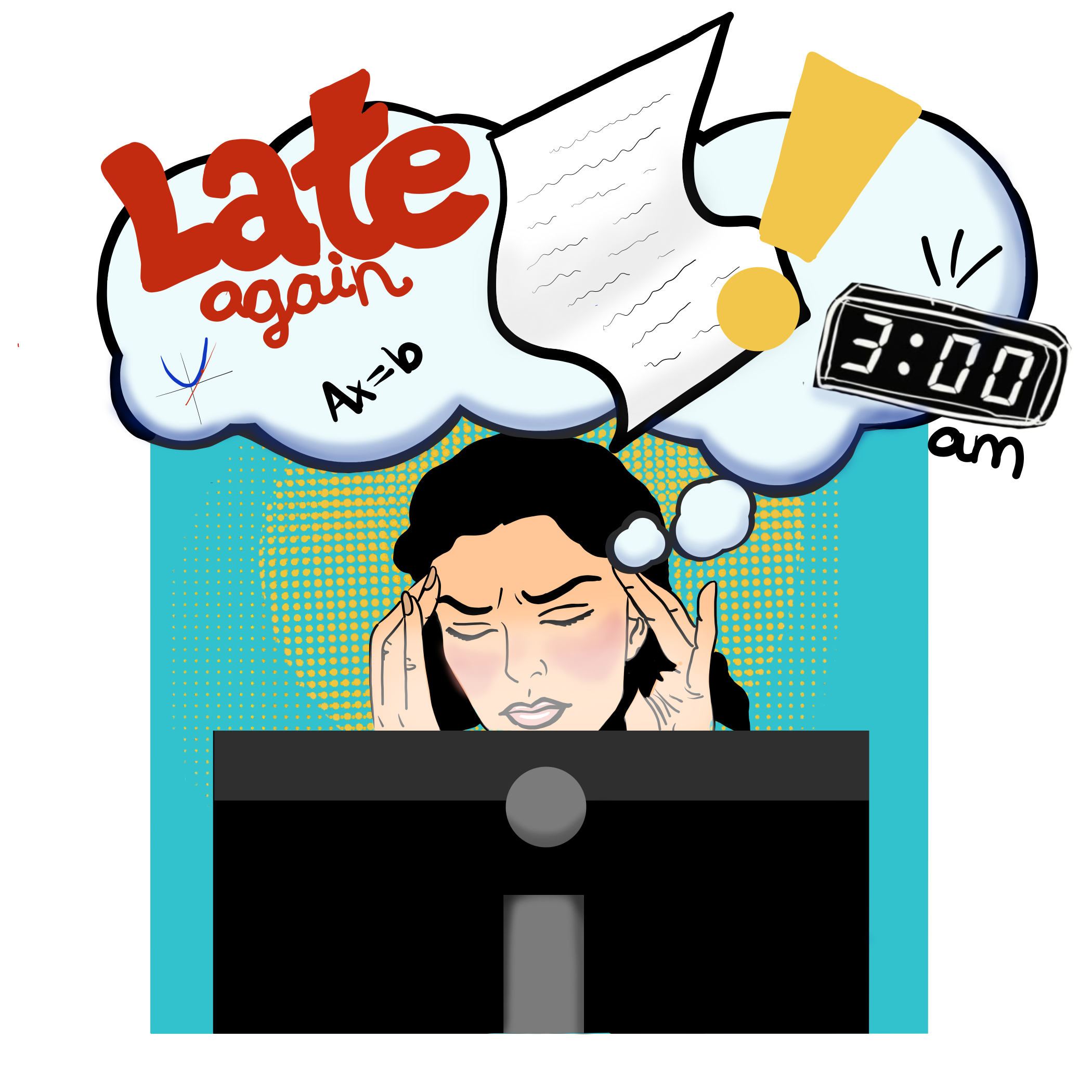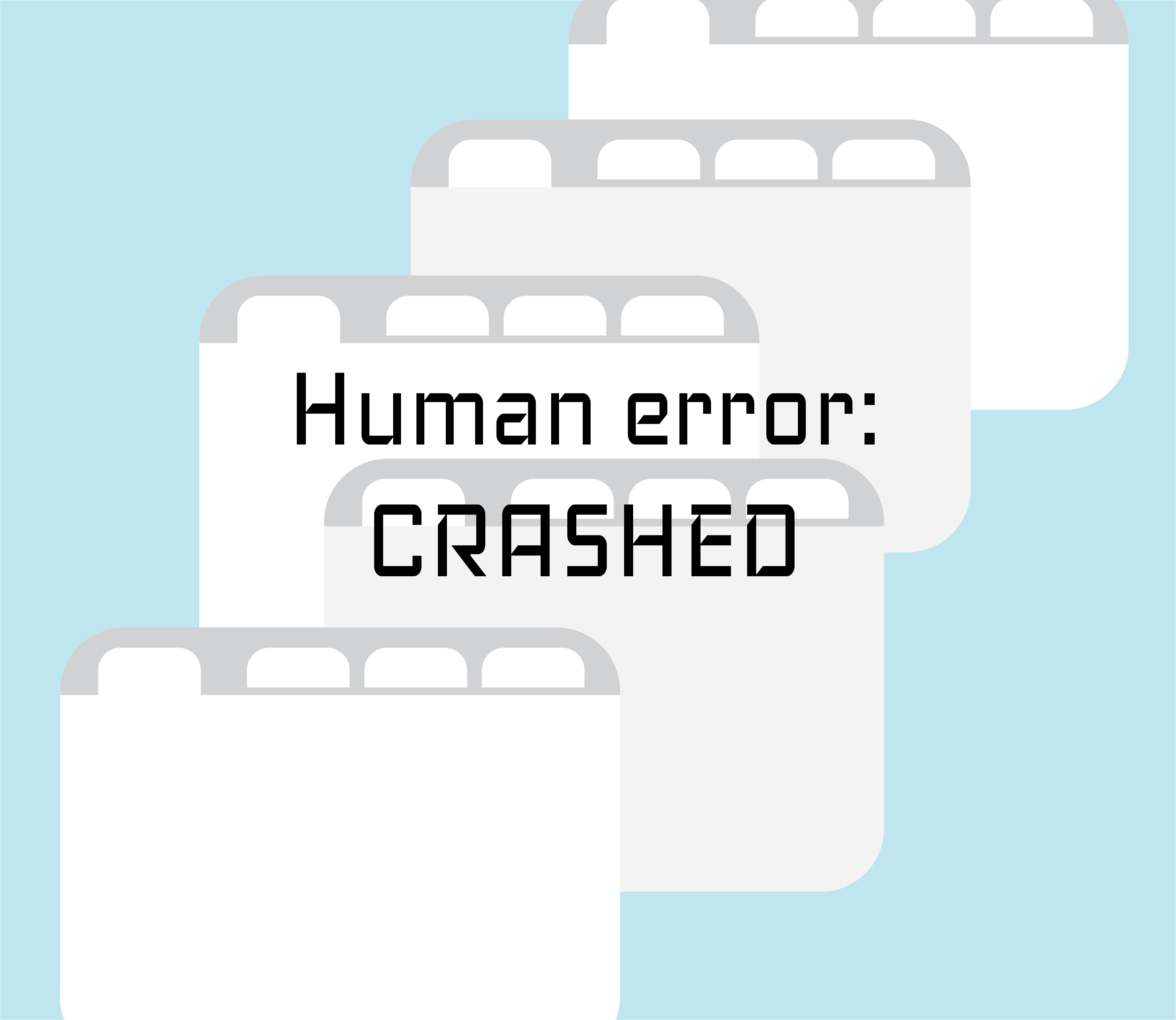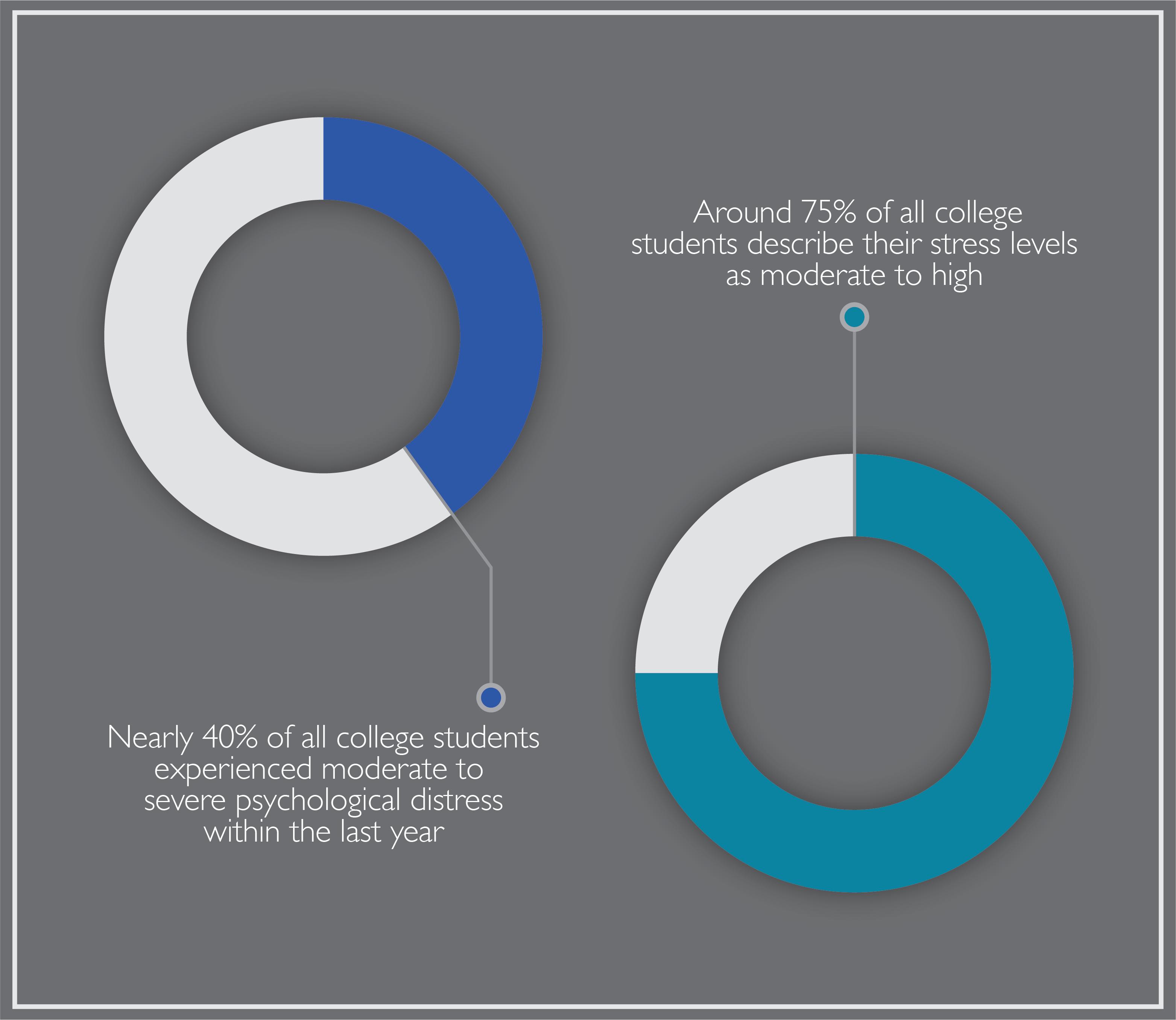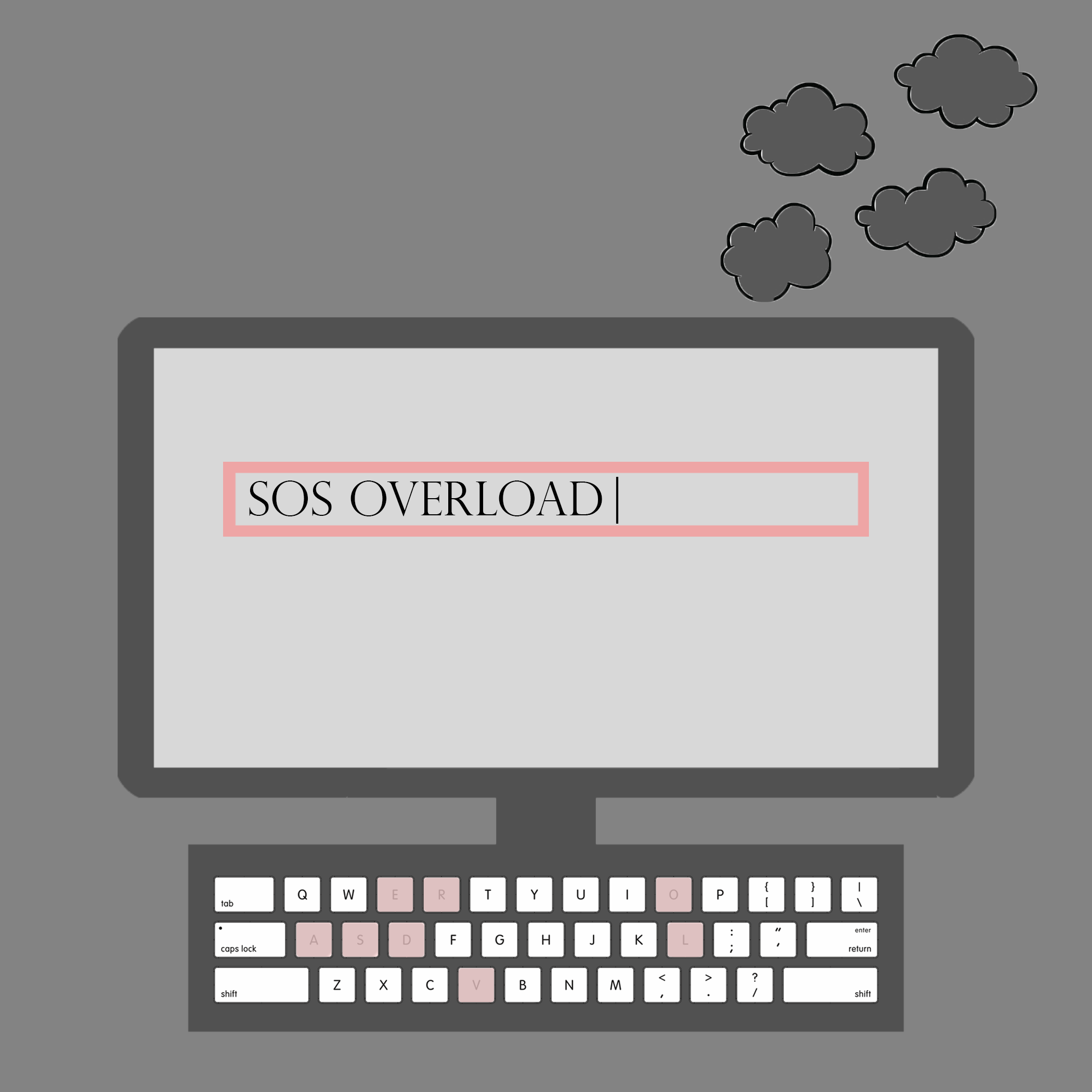The quarter system can be difficult and stressful to navigate even when the world isn’t experiencing a global pandemic–and uncertainty about the future, lack of institutional support and living alone can only make the mental toll worse. What can we do about the increasing strain on our mental health? NBN Opinion investigates.

Jacob Jarding, Medill ‘24
“I love you,” my mother said, after I called her late one stressful night recently just to hear the words come out of her mouth. I’m a freshman with a housing exception, who now finds himself half a country away from his family. I am relatively lucky to be here–my old rural connection forbids my family from contacting me on anything near as lofty as a video call. Following my goodbye to my mother, however, my thoughts then turned to how many housing exception students in my dorm might be here because they do not have someone who will tell them “I love you.”
It’s yet another irony of the pandemic that Northwestern’s physical Evanston freshman community now consists of a “core” of international and underprivileged students on campus, and a “periphery” of privileged freshmen surrounding it. With little more than a week’s notice, the entire campus was converted to special interest housing. There has been righteous criticism for Northwestern’s short notice decisions following a summer of unchecked optimism, yet I respect Northwestern's proactivity in recently admitting that there may be no return in Winter Quarter.
Nonetheless, Northwestern must be ready to deal with the consequences, an area where its policies have been far less satisfactory. The pandemic has far and away exacerbated the already woeful inadequacies of CAPS, and there is no longer communitarian housing available to provide a facade of equality between socioeconomic strata. We will persevere in living with the housing inadequacies that couldn’t be articulated through a mere systematic application. We will persist in necessary self-care against an infantile campus psychological system. I merely wish that our university would not so exploit these facts at the advantage of its pocketbook. In a global crisis, our ethos should be unity, not individualistic resilience. Indeed, if only the actions behind “We’re N This Together” matched its rampant quelling rhetoric.

Maddie Kerr, Medill ‘24
I knew this quarter would be difficult. I knew attending an elite university in the midst of a global pandemic would present some unique challenges.
But I never could have anticipated staying up every night until 3 a.m. to finish my assignments, living as a recluse in my room, panicking to meet each deadline because I had spent too much time agonizing over every single word that I attempted to write. I didn’t expect my perfectionism and anxiety to drive me to such extreme feelings of exhaustion, isolation, hopelessness and strain, yet here I am–and I’m not the only one.
According to the American College Health Association’s Spring 2020 Report, nearly 40% of all college students experienced moderate to severe psychological distress within the last year, and around 75% described their overall stress levels as moderate to high, a problem which has doubtlessly been exacerbated by the COVID-19 pandemic. Northwestern’s response to this national mental health crisis? A painfully over-simplified wellness TND that prescribed adequate sleep and breathing exercises as blanket solutions to mental health issues. Telling students with mental illnesses to do yoga can only ameliorate the situation so much. Unless Northwestern takes concrete action, people will continue to suffer.
Fortunately, there is one effective change that Northwestern could easily implement: a pass/fail grading system. Allowing pass/fail grades to count toward requirements would directly address the academic pressure that causes many students unbearable stress, enabling students to dedicate more time to caring for their own well-being. Furthermore, because many students with mental health conditions have limited connections to accessibility/wellness resources from home, a pass/fail system would provide more equal opportunities for success.
Regardless of whether Northwestern adopts this or any other change, however, I urge students who struggle like me to do one thing: be patient with yourself. It isn’t easy, but forgive yourself when you turn in a late paper, don’t beat yourself up over the “C” you got on your homework and don’t risk your well-being out of fear of failure. Dealing with mental health issues is a full-time commitment in its own right, and you’re doing the best you can.

Annie Ross, Weinberg ‘23
This summer, I did absolutely nothing. I had no job, no ongoing projects, no commitments whatsoever. Great, I thought, I’ll use this time to go on a much-needed self-care binge. It’ll just be like one long “mental health day,” right?
Yet the more I relaxed, the more I stressed. My friends found online internships, filled up their schedule with summer classes and volunteered their time in meaningful ways. My anxiety deepened; my resume wasn’t going to fill itself after all.
That was when I realized the full extent of society’s productivity culture and the toll it has been taking on my mental health. We–college students in particular–are so attuned to the idea that we must be constantly accomplishing something that the thought of stepping back for a minute seems incomprehensible. We too often equate taking a break with losing the race, even when that break is mandated by the CDC.
This pressure was unearthed in its full glory with the pandemic, catching us in a double-bind of finding productivity in an unsettling, often impotent home-bound environment. While feeling a sense of accomplishment is important for our mental well-being, equally as important is freeing ourselves from the competitive race of productivity. This requires a society-wide reckoning, but I say we start by giving ourselves an unapologetic day off–or, for that matter, an unapologetic 2020 off.

Hana Belt, Weinberg ‘23
Why is mental health such a struggle during this pandemic?
As many have said, this is an unprecedented time across all facets, including mental health. It’s a time when we either don’t have the resources we need to stay happy, or we feel out of control.
For some, it’s being home with family instead of with friends on campus. The result is a lonely environment, where normal stress-relieving activities involving hanging out with friends are unavailable.
A shifting society is another point of deteriorating mental health. American society, at least for now, is trying to function while still trying to suppress the spread of COVID-19. This means that most events have gone virtual, including clubs, appointments and schooling. Further, it’s been one of the hardest times to find a job, making this period of life even harder to navigate. All of this sudden inevitable change has definitely made people feel like they have no control over their life, resulting in a feeling of despair that worsens mental health symptoms.
Finally, we as students are known to have all these extra struggles that COVID brings, while still being expected to perform at the same level. This could very well be the tipping point for many students, since it is both frustrating and discouraging to be trying our hardest, but to be given no leniency or understanding by our professors.
So just know through all of this that it’s enough that you’ve survived through this pandemic. Getting up everyday is an accomplishment in itself. We can get through this.

Maria Caamaño Garcia, Medill ‘23
Being sent home due to the pandemic didn’t seem real at first. I got back home and started to act as if I were on vacation. But as quarantine started, I was fearful that being in isolation would probably affect me in ways I had never experienced before.
I am usually very emotional, but by June I realized that I had not cried at all after being sent back home. I had cried over romance movies and dog videos, but I hadn’t given myself permission to cry about being back in the Dominican Republic or about my freshman year of college being “cut short.” I had forced myself to become emotionally numb. When classes got cancelled before fall quarter, I just sat in bed looking at the email, not knowing what to feel. A week later, however, I was so sad I couldn’t get out of bed. For the first time in my life, I distanced myself from my family and friends and realized just how bad my mental health was. I had forced myself to shut off my emotions for so long that I was so ashamed I was allowing myself to wallow in my feelings. I kept thinking I had to pick one way to react. Turns out, there is no “right” way to react. Understanding that I should just allow myself to feel played a pivotal role in finding a good headspace.
During this period of time, I’ve learned many lessons that hopefully can help anyone going through a tough time. First, give yourself permission to feel and cry. It’s okay to be feeling so much at a time of so much uncertainty and craziness. Furthermore, accepting that you may need to reach out to others for help is important. In my experience, what helped me was finally opening up to my close friends about how I was feeling and being there for each other. Whether it is your family and friends or even seeking professional help (if you are able to), it takes courage to be vulnerable with others. But by having a source of support, you can release some of those contained feelings. Finally, take time for yourself. Self-care comes in so many different ways! From having a spa night to yourself, watching your favorite movie to doing something you genuinely enjoy, you should always treat yourself.